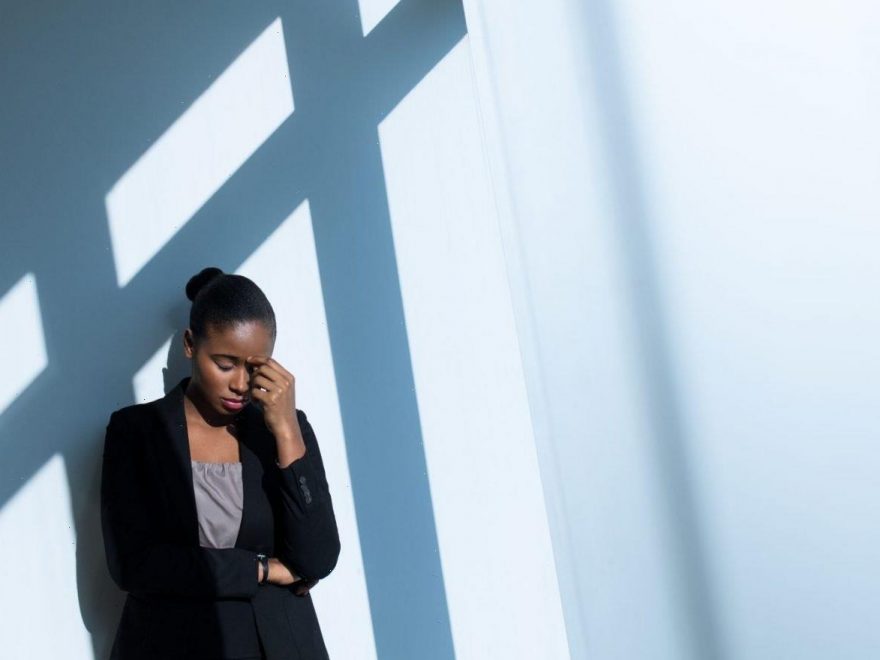Written by Amy Beecham
How the pandemic has shifted our workplace stress to anxiety.
Deadlines, juggling multiple projects and navigating new realms of hybrid working: the realities of work are enough to make anyone feel exhausted and overstretched.
Craving respite and living for the weekend is nothing new, but it’s not just our stress levels that seem to be heightened at the moment. Our workplace anxiety is also through the roof.
Last month, Future Forum’s Pulse report found that as more than a third of workers have returned to working from the office, levels of work-related stress and anxiety are at their worst since its survey began in 2020.
Full-time office workers showed a decline in work-life balance double that of flexible workers. Their scores were also 1.5 times higher for work-related stress and anxiety, compared to remote workers.
While they share many similarities, there is actually a fine line between stress and anxiety. According to the American Psychological Association, both are emotional responses, but stress is typically caused by an external trigger. The trigger can be short term, such as a work deadline, or long term, such as being unable to work or discrimination.
“People under stress experience mental and physical symptoms, such as irritability, anger, fatigue, muscle pain, digestive troubles and difficulty sleeping,” it explains on its website. “Anxiety, on the other hand, is defined by persistent, excessive worries that don’t go away even in the absence of a stressor. Anxiety leads to a nearly identical set of symptoms as stress: insomnia, difficulty concentrating, fatigue, muscle tension and irritability.”
“Stress is a physiological response in our body, and anxiety is a body and mind culmination of them both… A double whammy of sorts,” explains Jenn Lim, author and founder of Delivering Happiness.
So why are we feeling so anxious at work?
According to Lim, it’s a combination of VUCA: volatility, uncertainty, complexity and ambiguity.
“After an exhausting two-plus years, it’s no wonder people are feeling and thinking in primal “fight or flight” ways,” she tells Stylist. “Companies shutting their doors and the unpredictable economy has had a direct impact and forced people to question how they’re going to make ends meet and whether they’re still going to have a job next week/month/year.”
Of course, the pandemic added another element to the strain of a global recession and produced anxiety around literal life and death situations. “Essentially the virus was the latest incarnation of a sabre-tooth tiger, kicking in our primal instincts to just survive (minimally “getting by”) with the anxiety of not knowing how to adapt,” Lim continues.
Burnout has steadily been on the rise since the World Health Organisation updated its classification to a “syndrome” in toxic workplaces in 2019. But the pandemic caused it to spike in unprecedented ways.
As Lim shares, when we experience things like working too much, employers not being supportive enough or the hassles of adjusting to a remote or hybrid lifestyle – these are all work conditions that ladder up to elevated levels of burnout. “Then of course, when we layer in VUCA to our everyday lives, burnout levels (and therefore anxiety) are sure to be exacerbated,” she adds.
“But the silver lining is that there are ways to ground ourselves with things that are within our control to reduce burnout. If we’re more conscious of what we can control in our lives, how we spend our time, our sense of purpose and values, then we actively act accordingly.”
Human emotions are complex. Sometimes we stress more because we care deeply about our jobs or we feel anxiety linked to imposter syndrome when something good happens to us. So is anxiety at work always a bad sign? Is there really a silver lining, as Lim suggests?
“At its onset, work anxiety isn’t the root of all that’s wrong with work,” Lim suggests.
“Our bodies have been engineered to release signals of stress and worry when there are reasons to be [stressed and worried]. If we intentionally adapt our ways to manage it, it can actually be good for us to be in uncomfortable situations so we can learn and grow.”
However, she stresses, if these feelings are left unattended, that’s when persistent anxiety can beat us down mentally, physically and, sadly at times, soulfully.
How can we become less anxious about work?
According to Lim, the first move forward is injecting a sense of psychological safety in our workplaces.
“We need to be creating environments where people feel safe to express not just their accomplishments but their mistakes and failures too,” she explains. “ Effective leaders recognise the ways to tackle anxiety and burnout head-on is through honest and transparent conversations, not just about work but about life, too.
“With psychological safety in place, there’s a greater sense of trust to build a more common understanding of ‘we’re all in this shit together’.”
Images: Getty
Source: Read Full Article
